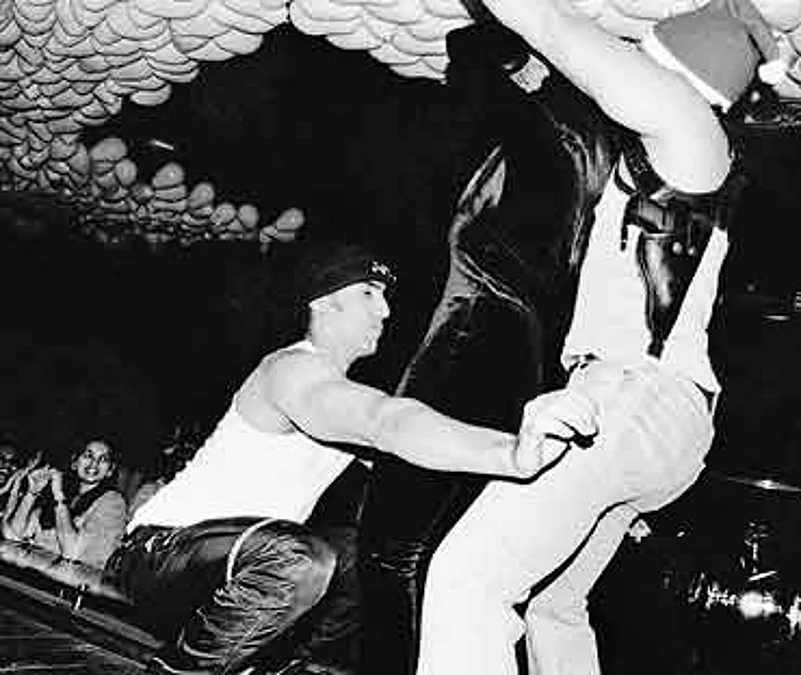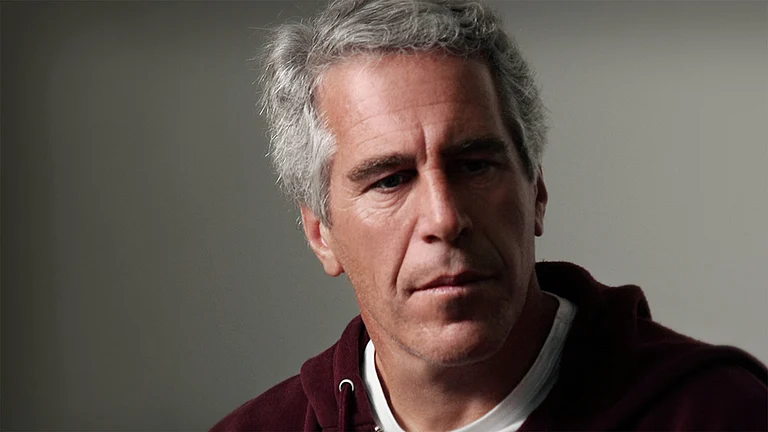On July 4, 1776, the then Thirteen United States of America, declared: "We hold these truths to be self-evident, that all men are created equal, that they are endowed by their Creator with certain inalienable Rights, that among these are Life, Liberty and the pursuit of Happiness."
Now, please analyse that sentence. "All men are created equal." (This is at a time when the framers of the Constitution kept slaves, women were chattels and blacks were lower than animals). I admit that this is a digression from the present context. "All men are created equal...." Are they? Some men are fat, some tall, others dim. It is a manifest load of codswallop. "...they are endowed by their Creator...."
Who is this Creator? Where does he live? Can the body be presented? We are not told. No court on earth seems to have the authority to impose the rule of habeas corpus in this adversarial context. But the declaration confidently goes on to claim "certain inalienable Rights...and the pursuit of Happiness". Hang on. ‘Happiness’ is an abstract noun. How can the pursuit of a will-o’-the-wisp be an "inalienable Right"? It is like chasing a ghost or bedding a half-virgin, neither of which has been empirically proven to exist. The blithe, almost casual, exclusion of half the human population, the female procreators, is no linguistic oversight; it is integral to the patriarchal thrust of the whole document. Despite the so-called separation of state and religion, this incipient virus of god-bothering puritanism infects the whole US system, right up to the present day.
Following on from the Jungian concept of ‘a collective unconscious’, I suppose there could be place for ‘communal happiness’, where a community, as against specific individuals within it, is ‘happy’. But this invokes a confusion between ‘contentment’ and ‘happiness’—a confusion not resolved by dictionary definitions.
It also presumes a homogeneity, not the discrete identifiable causes of specific ‘unhappiness’—bereavement, loss of job, jilted love, etc. To get from the particular to the general requires a legerdemain which defeats intellectual authenticity.
It could also be argued that a community, a family, can be generally ‘happy’, even though individual units within it are not necessarily consumed with ‘happiness’. This is the patriarchal formula. Though the late Ronald Laing waged incessant war against this idea, it may have some residual validity. After all, the panchayats in India were based firmly on this principle. So were southern Negro papas (a la Louis Armstrong) who dispensed arbitrary justice to pregnant mothers and adulteresses, as they in their wisdom saw fit—not very different from the lynch mob attitudes of the Ku Klux Klan, if you ask me. ‘Happiness’ they were not spreading; if anything, the opposite.
Both New Labour and the Indian government insist on spreading ‘happiness’ all over the place (in Northern Ireland and Kashmir). Politicians claiming to disseminate ‘happiness’ is like dispersing the noxious emanations of a quiescent fart, where no individual can be found culpable.
Fortunately (fortuitously perhaps), the UK has no written constitution. The nearest it comes to any codified set of declarations is King John’s Magna Carta (1215) and the Bill of Rights (1689). One dreads to think of the terrible linguistic, jurisprudential and philosophic mess if some clever committee busied itself in putting it all down on paper. Though one has to concede that the EU has been doing its best to impose chaos on a perfectly working order. Imagine a group of bureaucrats in Brussels setting about the business of defining ‘happiness’? The sheer surrealism is enough to invoke Joseph Conrad’s laconic shriek of despair in the Heart of Darkness: "The horror! The horror!"
Juvenal, that acidic and sharp observer of Latin mores, has no entry on ‘happiness’. I am told by people vastly more learned than I that the word ‘happiness’ does not exist in Sanskrit. Nor in Latin or Greek. ‘Happy’ yes, but not with the additive ‘-ness’. I have no idea. Leave it to you to sort it out.

‘Happiness’ is a jelly, which you can’t pin against a wall. Which is why the Romantic poets were so enamoured of it. It is a concept, like a warm blanket or if you like a hold-all which encompasses every wish-fulfilment, without the need to be specific. It is the linguistic equivalent of Prozac. No one knows what it does, but everyone is convinced that it does it well.
The downside is that if you don’t have it, you are condemned to the depths of Dante’s Inferno. This is the late 20th century feelgood factor running amok. If you don’t have ‘Happiness’, you are...what? "Rather sad", as the current demotic version would have it. Note the contrapuntal inflexion here.
It doesn’t say so in my oed. The earliest entries from AD 1521 on refer to the word in an entirely different context: "When in Switzerland I had the happiness to meet a friend whom I had not seen for many years." Coming into later years, the OECD offers this gem: "Each one’s happiness may be defined as the surplus gained when the total of pain is subtracted from the total of pleasure." Which is both precise and scientific. It then goes on to sniff at "the greatest happiness of the greatest number," which need not detain us here.
Before starting this piece I had imagined that I could weave my way round the topic without being personal—having been accused over the years of employing the first person singular to an excessive, if not vomitorious extent. But I soon realised that diligent research and learned references can be no substitute for the direct down-to-earth personal description, as was my raison d’etre from the start. Or else, why would the editors of this magazine ask me to write about ‘Happiness’? Of course I had plenty of ideas on the subject. But scholarship can in no way replace (certainly not in journalism) for the ‘i was there’ report. So, here goes.
I can categorically state that I have never, ever in my life, experienced ‘Happiness’, as the definitions adumbrate. On rare, sporadic occasions, I have certainly been ‘happy’. The ‘NESS’ part of it has thankfully swum past me. To me ‘happiness’ is a cow chewing the cud in a field of green grass—a posture and a situation I have never wished to emulate.
But let us investigate this concept (‘happiness’) in some scientific detail. After vigorous congress, when both man and woman have achieved orgasm, are they in a state of ‘happiness’? From my personal experience, I would say "No". Sated perhaps, sleepy almost certainly. Is she likely to turn round and say: "I am full of happiness"? I greatly doubt it.
Food then. You have had a sumptuous supper with beauteous wines. And the dessert is superb, accompanied by a vintage Port. You suppress the belch for the comfort of assembled company. Does your companion ask, "Are you overflowing with happiness?" The question answers itself.
The list could be extended but it is not necessary. Since the concept itself is nebulous, attempts to define it are bound to be fruitless. Which is why pieces like these are solicited by editors.Since anything at all can be packaged inside them and be made to look substantial. When in fact, internally, it is vacuous. If you are American, you don’t attack ‘motherhood and apple pie’, do you? Just as no American will join a protest march seeking to banish ‘happiness’ from the lexicon. The word ‘denatured’ means exactly that. It violates your constitution.
I will end with a personal recollection. At about the age of seven or eight, after I had done something worthy (which I don’t remember), my mother whispered to me: "Lokkhi chele" (sweet boy) and kissed my forehead. For reasons I have never been able to fathom, I took this to be a severe chastisement for an infraction (the nature of which I was unaware), which I did not know I had committed. But I carried it around in my head for long years. Thus does incipient guilt, a pervasive, indefinable angst, in the original sin of Cain stamped on our lives, smother (like Desdemona’s pillow) and asphyxiate. This is the primal existential cause of ‘unhappiness’. There is no equivalent spur to ‘happiness’.
(Sasthi Brata is the author of 11 books, including My God Died Young.)


























